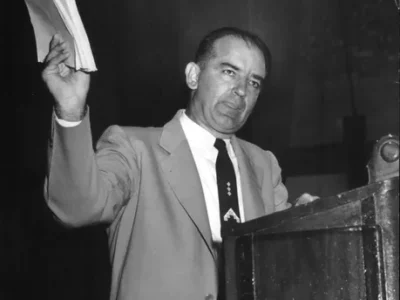Lessons from the DACA Ruling
The Court’s ruling could have important implications for environmental cases.
The Supreme Court’s ruling in Department of Homeland Security v. UC Regents was great news for 700,000 “Dreamers” who would otherwise face deportation. It also has important implications for administrative law — and for environmental law cases in particular. Here are three main takeaways.
Requiring Reasoned Explanation. Chief Justice John Roberts reinforced the principle that agencies must give reasoned explanations for their orders. As Roberts put it, in important decisions, “the government must turn square corners.” Roberts particularly faulted DHS for relying on a justification that only applied to part of its action and for failing to discuss another relevant factor. The DACA ruling is a message to lower courts to police these lapses. This requirement of reasoned explanation is part of the Administrative Procedure Act (APA).
The same kind of sloppiness (or deliberate fudging) is not unusual in the Trump Administration’s environmental decisions. The rollback of Obama’s fuel efficiency standards is a prime example. There are big holes in the explanation EPA gave for the rollback. The DACA case should encourage the D.C. Circuit to take a hard look at that flawed reasoning when it reviews the fuel efficiency rollback.
The Importance of Reliance Interests. In particular, Roberts faulted DHS for failing to consider the reliance that Dreamers had placed on the DACA program. Many had made life decisions based on the assurance that they would be allowed to lead normal lives in America. The Court said that DHS had to take this reliance into account.
This part of the ruling also has implications in the environmental area. For instance, the Trump Administration retracted the EPA waiver allowing California to set greenhouse gas standards for vehicles. While the waiver was in effect, California relied on it in numerous ways, such as in designing its air pollution programs. The Administration’s failure to consider California’s reliance provides another ground for attacking its retraction of the waiver.
Nationwide Rulings. Conservative have attacked the judicial use of nationwide injunctions against government decisions, like the one overturning DACA. They have called on the Supreme Court to prohibit nationwide injunctions. They have also argued that when a court overturns a regulation under the Administrative Procedure Act (APA), this ruling should only apply to the party who brought the challenge. Everyone else would remain subject to the rule until they also challenged it in court.
In the final footnote of the opinion, Roberts seems to have rejected the argument that only the party that brings an APA case is protected by a ruling. There were actually three cases before the Court, two involving nationwide injunctions and one involving an APA ruling. The lower court in the APA case specifically said that the APA ruling applied to everyone, regardless of whether nationwide injunctions are allowed. In his footnote, Roberts said the Court didn’t have to consider the nationwide injunctions in the other two cases because it was ruling on APA grounds in the NAACP case.
That footnote makes sense only if Roberts agreed with the lower court that the APA ruling had nationwide effect. Otherwise, he would have had to consider whether the nationwide injunctions were proper to protect other DACA recipients who weren’t before the Court.
As a recent paper by Mila Sohoni explains, there are strong arguments in favor of the approach Roberts endorsed. It’s true that the footnote is brief and does not explain the basis for the Court’s conclusion. However, the footnote can’t be lightly ignored, since it was an essential part of the Court’s ultimate disposition of the case.
One environmental context where this could matter involves repeal of Obama’s Waters of the United States (WOTUS) rule. Cases challenging this repeal are brought in federal trial courts. The implication of Roberts’s footnote is that a court ruling that sets aside the WOTUS repeal on APA grounds would have nationwide effect.
The Supreme Court’s message to lower courts is that the Trump Administration is subject to the same requirements for making and repealing regulations as everyone else. That’s likely to benefit plaintiffs challenging a wide range of regulatory rollbacks.
Reader Comments
One Reply to “Lessons from the DACA Ruling”
Comments are closed.







wouldnt this ruling have more of an effect on changes in guidance rather than regulations since the latter goes through public comment?